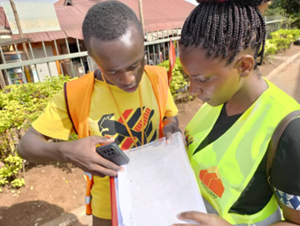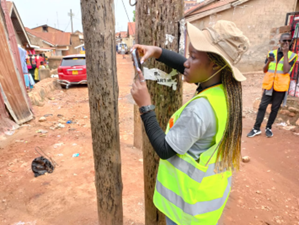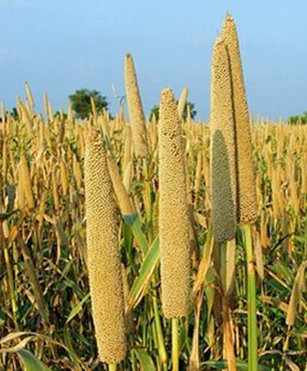The Legacy of EverywhereSheMaps: Empowering Youth to Tackle Global Challenges
- Stellamaris W. Nakacwa
- Nov 21, 2024
- 5 min read
Updated: Jan 8, 2025
Amid today's dramatic social, economic, and environmental disruptions, maintaining our sanity relies heavily on the certainty of data availability and the ability to generate innovative solutions. These disruptions, which impact both humankind and nature, underscore the indispensable role of the Everywhere She Maps, a YouthMappers program dedicated to empowering women and underrepresented communities to create and leverage geospatial data for solving real-world challenges. This initiative is more than just a mapping project; it’s a beacon of hope and a catalyst for change.
Everywhere She Maps, she makes a difference! By curating data through meticulous mapping, students generate a comprehensive body of knowledge and develop valuable skill sets. This process transforms our living environments and intellectual landscapes, driving resilience activities in our communities. The knowledge transfer is profound, but even more crucial is the empowerment of women across all levels of STEM. Everywhere She Maps ensures that students are actively involved in global remedial actions against the unprecedented disruptions occurring simultaneously in various parts of the world, all while fostering a strong sense of citizen science.

In 2023, the pillars of Everywhere She Maps were clear: POWER is GENERATED, PROSPERITY RISES, and LIVES are SAVED. Students from Uganda, Tanzania, and Nigeria exemplified these principles by creating impactful data through mapping power lines, supporting smallholder farmers, and enhancing healthcare systems. Their efforts confirm how local actions can contribute to global solutions, proving that through collaboration and innovation, we can navigate and mitigate the challenges of our time.
Through this program, students are not just learning about the world—they are changing it. Through a focus on empowering youth, especially young women, Everywhere She Maps is building a resilient future where data and innovation pave the way for sustainable development.
1. Everywhere She Maps POWER is GENERATED: Contributions to SDG 7
In Uganda, through Spotlight Kampala—a multi-institutional research collaboration of universities and community advocates on inequities that informal urban communities face in accessing and using electricity—students introduced the value of mapping to the project and, altogether, generated a resource to support answering insightful just energy predictions and power-related questions.
In Uganda, the Spotlight Kampala initiative, a collaborative research project involving universities and community advocates, tackles the inequities faced by informal urban communities in accessing and using electricity. Students brought the power of mapping to this project, creating a valuable resource to support insightful predictions and address critical questions about just energy access.
Students in the field collecting data.
Credit: Jurua Michael
Students also played a pivotal role in training non-university-going youths on using digital devices to collect essential infrastructure data. Working in teams of five, these students and their peers gathered data on energy infrastructure, such as poles, meters, transformers, and power plants, across 25 informal settlement neighborhoods. This effort significantly contributed to baseline statistics on access rates, affordability, supply reliability, and the quality of electricity in these low-income areas.
From these mapping contributions, it became clear that although 95% of households and businesses in informal communities are connected to the electricity grid, residents struggle to fully utilize this connection. The challenge lies in converting grid connections into comprehensive access, enabling the use of electricity for desired services and end uses. The data collected through this initiative not only highlights the existing disparities but also informs future efforts to improve energy access and equity in these communities.


A clean dataset can be accessed here: https://stellawava.github.io/Spotlight-Project-Data/
2. Everywhere She Maps PROSPERITY is RISES: Contributions to SDG 2 & 17

In Tanzania, the Everywhere She Maps initiative adopted a novel approach, intertwining knowledge production with advanced applications of machine learning (ML) and artificial intelligence (AI). Through the Crop ID Pilot Project, a collaboration among YouthMappers, the US Agency for International Development (USAID), and the United States Department of Agriculture Foreign Agricultural Service (USDA FAS), students aimed to collect and manage agricultural data, testing the feasibility of crowd-sourcing data to enhance ML techniques for crop identification.

With guidance from industry experts both in Tanzania and abroad, students developed a crowd-sourced method to gather ground truth data on crop types and agricultural fields. This mapping approach was reproduced across all chapters in Tanzania through a Training of Trainers (TOT) model. Students were not only exposed to mapping techniques but also gained valuable project planning and implementation skills. Additionally, they enjoyed bilingual lessons on naming various agricultural crops, including unique East African crops like Moringa.
Fourteen students from four university chapters were trained initially, who then trained over 200 students iteratively on designing, creating, and collecting CropID data for ML training. The TOT model expanded the learning structure from a small group to the entire chapter membership over two months before data collection began. Students then applied their knowledge in the field, collecting data used to train models and estimate farm fields useful for USDA and local government collaborations.
Students engaged in discussions on agriculture, complementary crowd-sourcing methods and tools, data analytics models, and critical processes driving project success. They mapped 1,682 crops in three categories—oil seeds, grains, and commercial crops—across over 50 wards in Arusha, Dodoma, and Mwanza.
Results from Mwanza & Photo of Millet
Credit: Michael Mann
The dataset collected was pivotal for validating supervised ML models on crop types and farm statistics, leading to more accurate production predictions in Tanzania. This initiative contributes to the larger goal of mapping smallholder farmers across Africa, enhancing the ability to estimate yields and plan for agricultural seasons, thereby significantly contributing to SDG 2 (Zero Hunger) and SDG 17 (Partnerships for the Goals).
This comprehensive effort not only empowered students with practical skills and knowledge but also demonstrated the power of community-driven data collection in transforming agricultural practices and improving food security. Can you guess the name of the crop shown below? This hands-on experience has proven invaluable in advancing both local and global agricultural initiatives.

3. Everywhere She Maps LIVES are SAVED: Contributions to SDG 3
In Nigeria, students made significant strides in updating the health dataset, emphasizing the inclusion of services for women and non-binary individuals at identified hospitals. This effort was not just about data collection but also about advocacy and policy influence.
Students actively engaged with policy leaders to demonstrate the value of their work. They lobbied for government adoption of these mapping tools to optimize budgeting, particularly within the health sector. This initiative aimed to ensure that healthcare services are more inclusive and accessible to all, reflecting the diverse needs of the population.
By mapping health facilities and the specific services they offer, students provided a comprehensive resource that highlights gaps and areas needing improvement. This data is crucial for policy makers to allocate resources effectively and ensure that underserved communities receive the attention they need.
The students' efforts in updating the health dataset and advocating for its use in government planning contribute directly to SDG 3 (Good Health and Well-being). Their work not only enhances the accessibility and quality of healthcare services but also empowers communities by ensuring their health needs are recognized and addressed.
Through this initiative, Everywhere She Maps students in Nigeria have proven that data-driven advocacy can lead to meaningful change, saving lives by improving healthcare services and ensuring they meet the needs of all individuals, regardless of gender identity
Conclusion

2023 was a banner year for Everywhere She Maps, showcasing the program’s incredible impact and indispensable role in addressing global challenges. From generating power and prosperity to saving lives, this dynamic initiative has proven that when students map, they make a world of difference!
Everywhere She Maps serves as a knowledge funnel, empowering YouthMappers to become agents of change by equipping them with essential skills and knowledge to tackle real-world challenges. It’s about building partnerships, bridging gaps, and fostering collaborations that amplify our collective impact. So, let’s map the future together! Everywhere She Maps is not just indispensable; it's unstoppable. Join us and be part of the movement where mapping meets making a difference.
Engage with ESM here: YouthMappers Champions Fund | ASU Foundation
Contact : info@youthmappers.org
About the Author
Stellamaris W. Nakacwa - Former ESM Program Director, YouthMappers regional ambassador: 2019-2021, YouthMappers leadership fellow, 2017










Comments